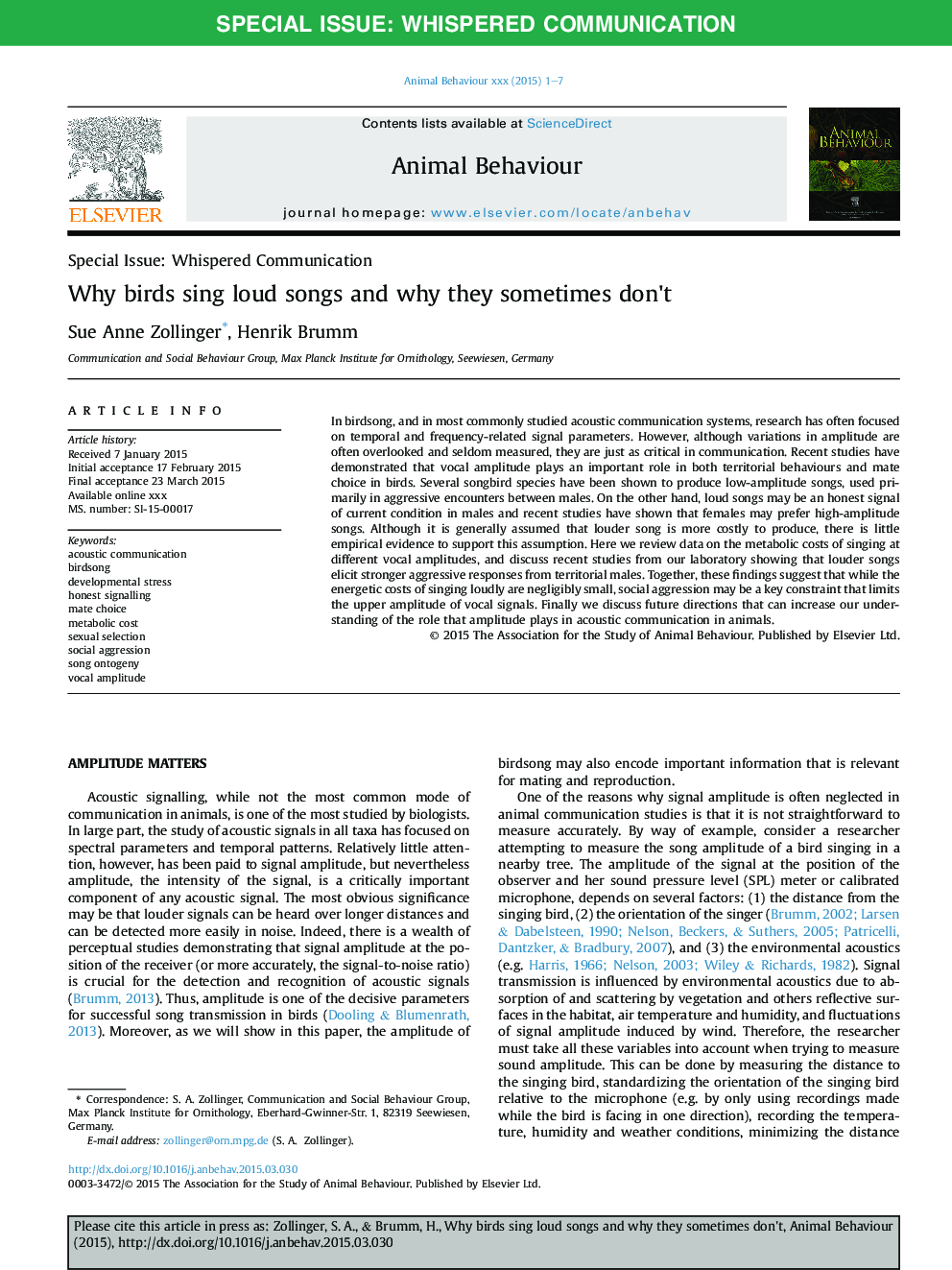| Article ID | Journal | Published Year | Pages | File Type |
|---|---|---|---|---|
| 8489875 | Animal Behaviour | 2015 | 7 Pages |
Abstract
In birdsong, and in most commonly studied acoustic communication systems, research has often focused on temporal and frequency-related signal parameters. However, although variations in amplitude are often overlooked and seldom measured, they are just as critical in communication. Recent studies have demonstrated that vocal amplitude plays an important role in both territorial behaviours and mate choice in birds. Several songbird species have been shown to produce low-amplitude songs, used primarily in aggressive encounters between males. On the other hand, loud songs may be an honest signal of current condition in males and recent studies have shown that females may prefer high-amplitude songs. Although it is generally assumed that louder song is more costly to produce, there is little empirical evidence to support this assumption. Here we review data on the metabolic costs of singing at different vocal amplitudes, and discuss recent studies from our laboratory showing that louder songs elicit stronger aggressive responses from territorial males. Together, these findings suggest that while the energetic costs of singing loudly are negligibly small, social aggression may be a key constraint that limits the upper amplitude of vocal signals. Finally we discuss future directions that can increase our understanding of the role that amplitude plays in acoustic communication in animals.
Keywords
Related Topics
Life Sciences
Agricultural and Biological Sciences
Animal Science and Zoology
Authors
Sue Anne Zollinger, Henrik Brumm,
